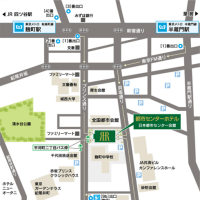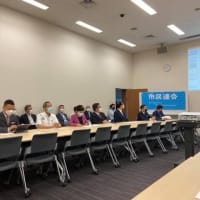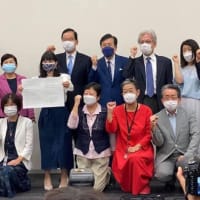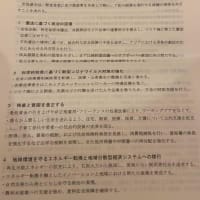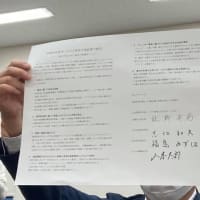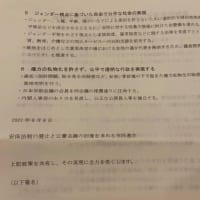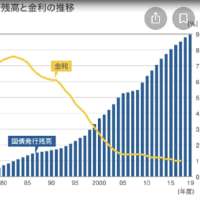Iraqi doctor petitions WHO for open-access review of birth defect data
イラクの医者は、WHOに先天性欠損症データの開架式のチェックを請願します
i Jul 31st w Comments Off x by Afri
私7月31日 w Comments Off xそばに Afri
Dr Samira Alani, who has worked at Fallujah General Hospital since 1997, has been documenting cases of congenital birth defects at the hospital since 2006, when a sharp increase in rates led her to begin recording data on the developing health crisis. Credit: Donna Mulhearn.
率の急激な増加が彼女に開発途上の健康危機に関するデータを記録し始めさせたとき、サミラ・アラニ族博士(その人は1997年以降Fallujah総合病院で働きました)は2006年以降病院で先天性先天性欠損症のケースを文書化していました。信用:Mulhearn夫人。
International Coalition to Ban Uranium Weapons
ウラン武器を禁止する国際的連立
Fallujah paediatrician Dr Samira Alaani has launched a Change.org petition calling for official data on rates of congenital birth defects in Iraq to be submitted for peer review in the open-access journal PLoS One after repeated publication delays by the World Health Organisation and Iraqi government (Petition is available here: www.change.org/act4iraq).
度重なる出版が世界保健機構とイラク政府によって遅れたあと、開架式のジャーナルPLoS Oneで査読のために提出されるためにイラクで先天性先天性欠損症の率に公式データを求めているChange.org嘆願書を、サミラAlaani Fallujah小児科医博士は開始しました(嘆願書はここで利用できます:www.change.org/act4iraq).
Results from the nationwide study, undertaken by the Iraqi Ministry of Health (MoH) and the World Health Organisation (WHO) in 2012, are now long overdue. Iraqi researchers interviewed by the BBC earlier this year claimed it will link increased incidence rates of birth defects with areas subject to heavy fighting in the 2003 war – a hugely significant and politically sensitive conclusion.
全国的な研究(2012年にイラク保健省(MoH)と世界保健機構(WHO)によって保証される)からの結果は、現在長く過ぎています。今年始めBBCによって面談されるイラクの研究者は、それが2003年の戦争で激しい戦いを前提として先天性欠損症の増加した発生率を地域に結ぶと主張しました – 非常に重要で政治的に敏感な結論。
Dr Alaani is calling for the data to be submitted to the leading open-access journal PloS One after persistent delays from the WHO and MoH in the analysis of the data. Publication in PLoS One would allow independent scrutiny of the data and reduce fears that the WHO’s internal process had been subject to politicisation because of the controversial nature of the study. The research was prompted by concerns from maternity hospitals across Iraq that rates of congenital birth defects were unusually high. This is the first time that rates have been recorded and analysed nationwide.
Alaani博士は、データの分析においてWHOとMoHから持続的な遅れの後主要な開架式のジャーナルPloS Oneに提出されるデータを要求しています。PLoS Oneの出版は、データの独立した詳細な調査を許して、WHOの内部のプロセスが研究の論争の的となる性質のため、政治問題化の影響を受けたという恐れを減らします。研究は、先天性先天性欠損症の率が異常に高かったという懸念によって、イラク中の出産の病院から促されました。率が記録されて、全国的に分析されたのはこれが初めてです。
“We began logging these cases in 2006 and we have determined that 144 babies are born with a deformity for every 1000 live births. We believe it has to be related to contamination caused by the fighting in our city, even now, nearly 10 years later,” said Dr Samira Alaani, a paediatrician at Fallujah General Hospital. “It is not unique to Fallujah; hospitals throughout the Anbar Governorate and many other regions of Iraq are recording spiralling increases. Every day I see the strain this fear puts on expectant mothers and their families.”
「我々は2006年にこれらのケースを記録し始めました、そして、我々は144人の赤ちゃんが1000の生児出生ごとに奇形で生まれると決心しました。我々は、それが、今でも、ほぼ10年後に我々の都市で戦いに起因する汚染に関連がなければならないと思っています」と、サミラAlaani博士(Fallujah総合病院の小児科医)は言いました。「それは、Fallujahに特有でありません;Anbar行政区域中の病院とイラクの多くの他の地域は、螺旋を描いている増加を記録しています。毎日、私は、この恐れが妊婦と彼らの家族に与える重圧を見ます。」
The publication delays began to lengthen in March after BBC World broadcast a series of interviews with Iraqi MoH staff. Academics around the globe subsequently submitted a petition calling for full disclosure. Since then, the WHO and MoH have introduced a series of procedural hurdles that have slowed down release of the results. In addition to increasing public confidence in the analysis of the data, submission to PLoS One would also ensure a far swifter process of peer-review.
BBC WorldがイラクのMoHスタッフと一連のインタビューを放送したあと、出版遅れは3月に延び始めました。世界中の研究者は、完全な開示を要求している嘆願書をその後提出しました。それ以来、WHOとMoHは、成績の公開を遅くした一連の手続き的なハードルを持ち出しました。データの分析において住民の信頼度を増やすことに加えて、PLoS Oneへの服従は、査読のはるかにより素早いプロセスも確実にします。
“It is incredibly important for the Iraqi people that these data are published, and published in a swift and transparent manner,” said Doug Weir, Coordinator of the International Coalition to Ban Uranium Weapons. “They are a crucial first step in helping to investigate, and ultimately reduce, the public health legacy from environmental contamination caused by the Iraq War 10 years ago. No more delays, there is intense international interest in Iraq’s health crisis and open-access publication is the only way to ensure public confidence in the peer review process.”
「これらのデータが発表されて、速くてトランスペアレントな方法で公表したことは、イラクの人々にとって信じられないほど重要です」と、ダグ・ウィアー(Ban Uranium WeaponsへのインターナショナルCoalitionのCoordinator)は言いました。「彼らは調査するのを助けることでの重要な第一歩で、最終的に減量します。そして、環境汚染からの公衆衛生遺産が10年前イラク戦争に起因します。これ以上は遅れません、イラクの健康危機に対する激しい国際的な関心があります、そして、開架式の出版は査読プロセスに住民の信頼度を確実にする唯一の方法です。」
If the results do link military-origin pollution with birth defects it will prove uncomfortable reading for the US and its Coalition partners. Researchers have long argued that the dispersal of heavy metals and other toxic materials during conflict presents a long-term health threat to civilian health, particularly where environmental assessment and management is disrupted by post-conflict insecurity.
結果が軍の起源汚染と先天性欠損症を関連づけるならば、それは米国とそのCoalitionパートナーのための不快な読み物を証明します。研究者は、対立の間の重金属と他の有毒な材料の解散が一般人の健康(特に環境評価と管理が紛争終結後不安定によって中断するところ)に長期の健康の脅威を示すと長く主張しました。
To watch film on the effects of Depleted Uranium by Dearbhla Glynn who visited Basrah in Iraq, go here: http://www.afri.ie/news-and-events/ban-depleted-uranium-film/
イラクでBasrahを訪問して、ここに行くDearbhlaグリンによってDepleted Uraniumの影響の上でフィルムを見ること:http://www.afri.ie/news-and-events/ban-depleted-uranium-film/
Comments










